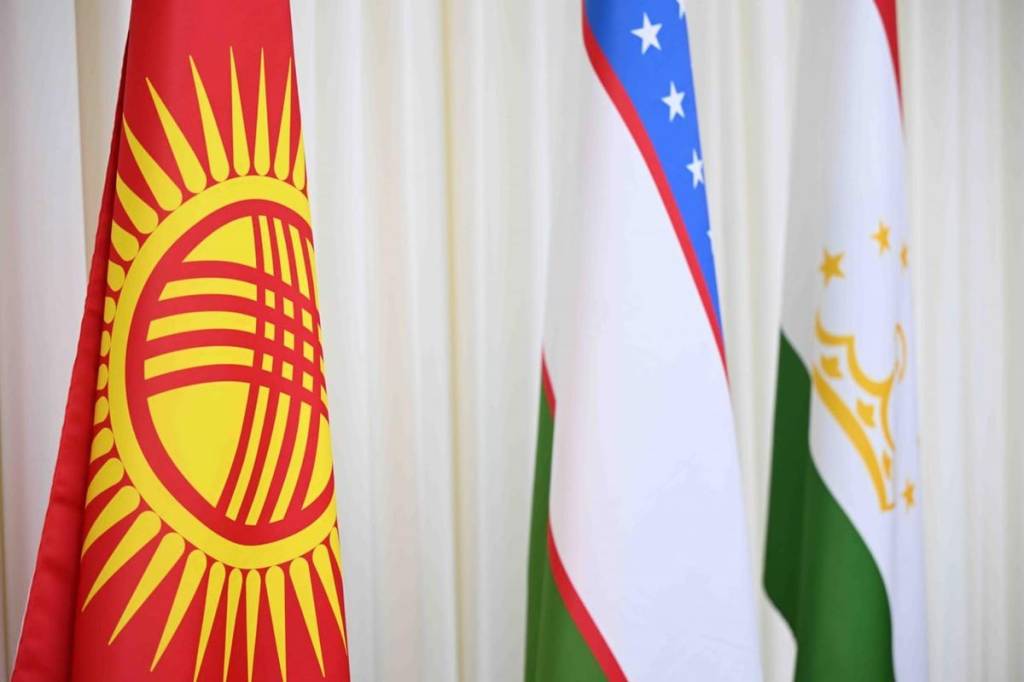March 2025, Khujand. This ancient city, where every stone still bears the trace of caravan routes, and every breeze echoes with whispers of classical poetry, has become a turning point in the history of regional politics.
The Presidents of Uzbekistan, Tajikistan, and Kyrgyzstan signed a Treaty on the Junction Point of State Borders. This document has put an end to territorial disputes that have persisted for over 30 years due to border uncertainties.
On the same day, the Khujand Declaration on Eternal Friendship was adopted, and a symbolic Friendship Monument was erected. The countries also exchanged instruments of ratification.
From Borderline to Priority: A Resolved Conflict
Enclaves, overlapping ethnic populations, and restrictions on access to water and roads had long turned the border into a volatile zone – a metaphorical minefield that stood in the way of lasting peace. The armed clash in Batken in September 2022, involving artillery, drones, and armored vehicles, exposed just how fragile the situation in the region had become. Dozens of people lost their lives, hundreds were injured, and thousands were evacuated. These events underscored that the issue was not merely diplomatic – it posed a direct threat to regional security.
In the aftermath, the heads of the two countries’ security services – Kamchybek Tashiev and Saimumin Yatimov – initiated closed-door negotiations.
For three years, the parties reached agreements using satellite imagery, legally recognized the official status of the Vorukh enclave, developed a mechanism for land exchanges, and opened a neutral transportation corridor. This treaty is not merely a binding agreement. It reflects a conscious and mature civic commitment. Behind this process lies the hope of saving lives, rebuilding trust, and shaping a stable future.
Tashkent – A Regional Facilitator
No lasting regional architecture can be built without a center of stability. In recent years, Tashkent has emerged as such a center – not through dominance, but by facilitating dialogue and fostering harmony. The city has demonstrated a form of leadership rooted in cooperation and mutual respect.
Since 2016, Uzbekistan’s foreign policy has undergone a profound transformation. President Shavkat Mirziyoyev has introduced a comprehensive language of trust to the region: openness instead of isolation, pragmatism instead of rivalry, bridges instead of walls.
Uzbekistan has put this approach into practice through a series of tangible steps, including:
– has created a space for regional dialogue in the C5+1 format;
– supported the initial stages of construction of the “China – Kyrgyzstan – Uzbekistan” railway;
– opened more than 15 border checkpoints over the past seven years;
– increased trade turnover with Tajikistan from $120 million to $800 million;
– strengthened cooperation in education and cultural-humanitarian fields, including the establishment of joint universities.
Uzbekistan has become a facilitator that leads with initiative – a significant turning point in the course of regional politics.
From Idea to Institutions: Steps Toward a Central Asian Schengen
The Khujand Treaty serves as the institutional foundation for regional unity and stability. For the first time, the concept of a “Central Asian Schengen” was officially proposed at the summit – a visionary initiative aimed at establishing a visa-free area and harmonizing customs and migration policies. What once seemed an unattainable dream is now becoming a logical step in the region’s integration process.
Joint trade fairs are being held across cities such as Khujand, Andijan, and Osh. Road and rail connections, such as the “Dushanbe – Fergana” and “Osh – Tashkent” routes, have been established. In 2024 alone, more than 20 air routes were launched. Meanwhile, student exchange programs are expanding rapidly.
All of this reflects a shared goal: to create a space for voluntary and open cooperation based on mutual respect.
Not an Enclave, but a Civilizational Bridge
Central Asia is neither a remote outpost nor a buffer zone on the world map. It is a vital crossroads connecting Shanghai and Istanbul, as well as Brussels and Islamabad.
The “China – Kyrgyzstan – Uzbekistan” railway, set to launch in 2026, the CASA-1000 project for exporting electricity from Tajikistan and Kyrgyzstan to South Asia, the Trans-Afghan corridor, which is expected to transform regional logistics despite certain risks, along with emerging hubs in Fergana, Sughd, and Batken, will unlock unprecedented opportunities in vital sectors such as education, technology, and exports soon.
Khujand Spring – A Symbol of Political Awakening
Is the Khujand Spring merely a one-day political event? Certainly not. It has become clear that borders are not just lines on a map, but a kind of remedy, healing centuries-old wounds. Politics is not solely about power. It is about the ability to listen, to understand one another, and to achieve harmony. Leadership is not just a title. It is a responsibility to embody the hopes of the people.
In the 21st century, regional alliances are no longer a matter of choice, but a necessity. Amid a global crisis of trust, instability, and economic tensions, Central Asia is demonstrating that even the most complex challenges can be overcome through collective effort. ( Courtesy: Uza Uz )


